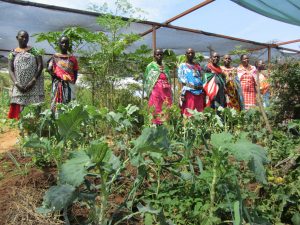Many Italian Civil Society Organizations (CSOs) have been working for over 30 years in a spirit of solidarity and partnership in Kenya, successfully participating to the calls launched by AICS Rome or by AICS Nairobi. Many of the CSOs are part of COIKE, the coordination and representation body of the Italian CSOs working in Kenya.
The projects currently underway are:
ECOS - Blue Economy and Coastal Ecosystem - Opportunities for sustainable development. The initiative is realized by the Center for Appropriate Technology Development (CAST) and is based on the principles of the blue economy. It involves activities aimed at developing local communities through the sustainable exploitation of natural resources.
InJob! Educational and employment inclusion pathways for vulnerable young students of public vocational training institutes. Realized by No One Out, the initiative aims to promote the educational, social, and professional inclusion of vulnerable young people and those with disabilities in Kenya by strengthening the public vocational training system (TVET).
Economic recovery for the agri-food sector in response to the impact of COVID-19 in Kenya. Implemented by AVSI, the initiative focuses on economic recovery in response to the negative impact of Covid-19, focusing on the agri-food sector with a value chain approach and support for cooperatives of small farmers.
NICE: family and school support program for equitable and inclusive access to education for children living on the streets and/or with disabilities. Implemented by AMANI ONLUS, the intervention aims to improve access to education among the most vulnerable children in Kenya according to the principles of the Global Partnership for Education (Sustainable Development Goal 4).
M-imba+ Digital and physical access to quality pregnancy pathways. Implemented by World Friends, the intervention aims to improve maternal and child health conditions among the most vulnerable groups in the informal settlements of northeast Nairobi with a combined intervention aimed at reducing maternal, neonatal, and child mortality rates.
Caffè corretto: development of a sustainable, inclusive, and innovative supply chain. Implemented by CELIM, the initiative aims to promote a sustainable agriculture model for the coffee supply chain in Kenya. The project's objective is to increase the income of 9,460 producers and 2,720 women producers and 4 cooperatives involved in the wet processing of the product.
ECOS - Blue Economy and Coastal Ecosystem - Opportunities for sustainable development. The initiative is realized by the Center for Appropriate Technology Development (CAST) and is based on the principles of the blue economy. It involves activities aimed at developing local communities through the sustainable exploitation of natural resources.
InJob! Educational and employment inclusion pathways for vulnerable young students of public vocational training institutes. Realized by No One Out, the initiative aims to promote the educational, social, and professional inclusion of vulnerable young people and those with disabilities in Kenya by strengthening the public vocational training system (TVET).
Economic recovery for the agri-food sector in response to the impact of COVID-19 in Kenya. Implemented by AVSI, the initiative focuses on economic recovery in response to the negative impact of Covid-19, focusing on the agri-food sector with a value chain approach and support for cooperatives of small farmers.
NICE: family and school support program for equitable and inclusive access to education for children living on the streets and/or with disabilities. Implemented by AMANI ONLUS, the intervention aims to improve access to education among the most vulnerable children in Kenya according to the principles of the Global Partnership for Education (Sustainable Development Goal 4).
M-imba+ Digital and physical access to quality pregnancy pathways. Implemented by World Friends, the intervention aims to improve maternal and child health conditions among the most vulnerable groups in the informal settlements of northeast Nairobi with a combined intervention aimed at reducing maternal, neonatal, and child mortality rates.
Caffè corretto: development of a sustainable, inclusive, and innovative supply chain. Implemented by CELIM, the initiative aims to promote a sustainable agriculture model for the coffee supply chain in Kenya. The project's objective is to increase the income of 9,460 producers and 2,720 women producers and 4 cooperatives involved in the wet processing of the product.



